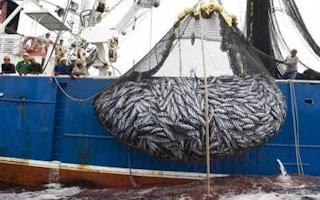The latest State of the World’s Fisheries and Aquaculture report (SOFIA 2012) was issued in Rome on Monday by the UN Food and Agriculture Organization (FAO).
SOFIA 2012 estimates that 57 per cent of marine fisheries are fully exploited in 2009, while 30 per cent of all assessed marine stocks are over-exploited.
The report shows that fisheries- related employment supports the livelihoods of 10 to 12 per cent of the world’s population (660-820 million people), with 4.3 billion people depending on fish to provide about 15 per cent of their animal derived protein.
Strong management measures to achieve sustainable fisheries and eradicating unfair competition caused by illegal fishing or unfair exploitation contracts must be a priority on the policy agenda, WWF International reiterated on Monday.
“With such dependency on fish meeting a rapidly growing population, we simply cannot sustain a situation where 87 per cent of global marine fisheries are at or above full exploitation” said Alfred Schumm, Leader of WWF’s global Smart Fishing Initiative.
“Using the precautionary approach, a holistic suite of ecosystem- and science based measures must be adopted if we are to realise the clear economic, environmental and social benefits of sustainably managed fisheries,” added Schumm.
An ever-growing dependence on fish means governments must understand that the current fisheries crisis is an issue of fundamental humanitarian importance, according to WWF.
Importantly, SOFIA 2012 also recognizes that controlling illegal, unreported and unregulated vessels is a burden gradually falling on coastal states, port states, regional fisheries bodies, and others entities.
“Nobody wants the efforts of the good players to be undermined by an ugly underbelly of illegal fishing. We urge countries to push for the ratification and implementation of essential tools to manage this, such as the Port State Measures Agreement and the Global Record of Fishing Vessels as well as we urge fisheries to implement satellite AIS and electronic observer tools on every fishing- and carrier-vessel,” said Mr Schumm.

















